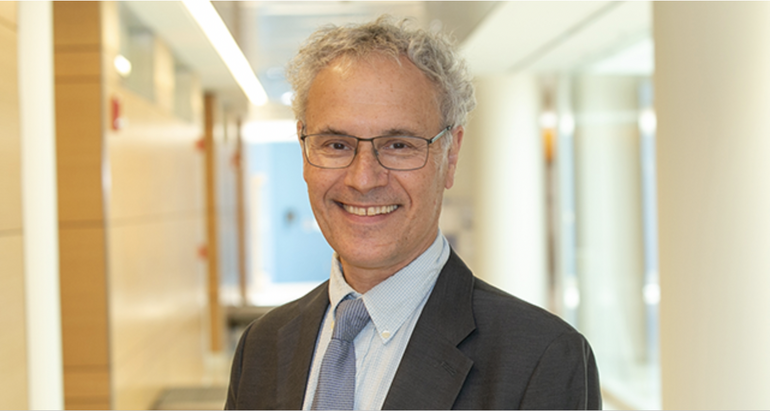Victor Ambros, a scientist at UMass Chan Medical School in Worcester, has been named the recipient of the 2024 Nobel Prize in Physiology or Medicine for his co-discovery of microRNA, short RNA molecules playing an integral role in gene regulation.
Ambros shares his Nobel win with Gary Ruvkun of Massachusetts General Hospital and Harvard Medical School, both in Boston.
Ambros, whose discovery about the impact of microRNA was tested on nematodes, said the study of laboratory organisms is fundamental to advancing understanding of biology in a way he and his colleagues are constantly moving into unexpected territory.
“The processes that bring living things to the state where we as we see them today are poorly understood and the underlying processes in ourselves and the processes that manage and coordinate the action of an organism like this are still deeply mysterious,” he said at a press conference at UMass Chan on Monday.
Ambros’s win is the second UMass Chan scientist to take home the prestigious award. Scientist Craig Mello shared the 2006 Nobel Prize for Physiology or Medicine for his discovery of RNA interference with scientist Andrew Fire of Stanford University School of Medicine in California.
Mello said Ambros and Ruvkun’s recognitions are long overdue and it’s a relief for him to have them acknowledged.
“I was surprised that they had awarded the prize to us [Mello and Fire], skipping over Gary and Victor for now almost 18 years,” said Mello. “It’s kind of a relief to finally feel like justice has been done. The discovery that Victor and Gary made was an inspiration to me.”
UMass Chan is the marquee medical research institution in Central Massachusetts. For example, the school received 353 National Institutes of Health funding awards totalling $179 million in fiscal 2023. The next closest organization was Worcester Polytechnic Institute, which received 16 awards totalling $7 million.
From its research, the school and its personnel spin off a number of businesses to help bring real-world applications to the market. Phio Pharmaceuticals in Marlborough is working on cancer treatments, and Atalanta Therapeutics in Boston is working on neurodegenerative disease treatments; and both are relying in part on research performed by Mello.
With the amount researchers know today regarding genome and DNA sequences and gene products, Ambros said it can feel from the outside like scientists know all they need to know about the area.
“But that is actually an illusion that we have to consciously disabuse of ourselves of and leave ourselves open for the surprises,” he said.
Specifically, discoveries like Ambros’ have potential application for future therapies treating human health conditions, especially those rare and understudied.
“The deeper we understand living systems, the better equipped we are to figure out what’s wrong when these systems go awry in the context of disease,” said Ambros.
Mica Kanner-Mascolo is a staff writer at Worcester Business Journal, who primarily covers the healthcare and diversity, equity, and inclusion industries.

